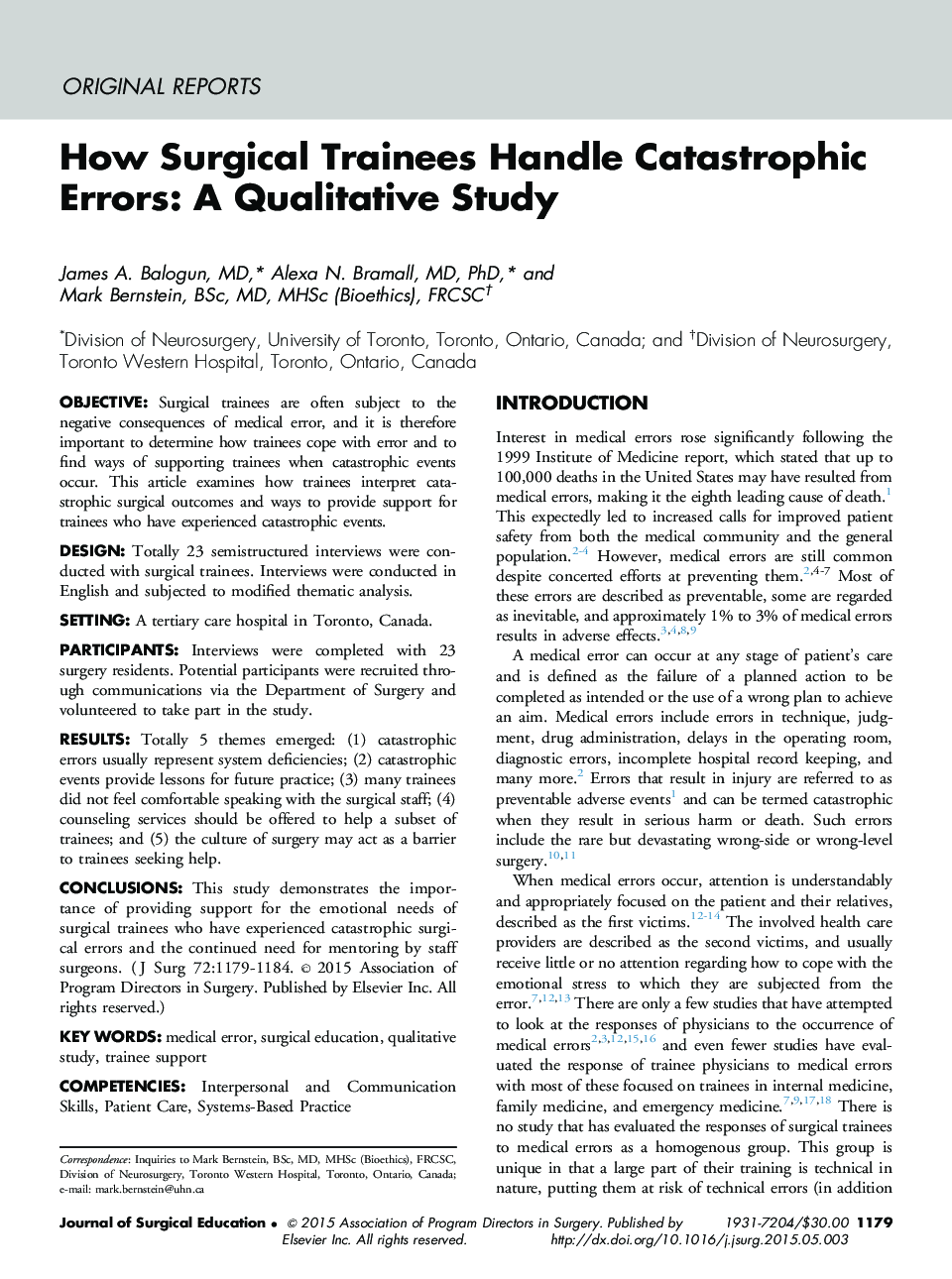| Article ID | Journal | Published Year | Pages | File Type |
|---|---|---|---|---|
| 4297488 | Journal of Surgical Education | 2015 | 6 Pages |
ObjectiveSurgical trainees are often subject to the negative consequences of medical error, and it is therefore important to determine how trainees cope with error and to find ways of supporting trainees when catastrophic events occur. This article examines how trainees interpret catastrophic surgical outcomes and ways to provide support for trainees who have experienced catastrophic events.DesignTotally 23 semistructured interviews were conducted with surgical trainees. Interviews were conducted in English and subjected to modified thematic analysis.SettingA tertiary care hospital in Toronto, Canada.ParticipantsInterviews were completed with 23 surgery residents. Potential participants were recruited through communications via the Department of Surgery and volunteered to take part in the study.ResultsTotally 5 themes emerged: (1) catastrophic errors usually represent system deficiencies; (2) catastrophic events provide lessons for future practice; (3) many trainees did not feel comfortable speaking with the surgical staff; (4) counseling services should be offered to help a subset of trainees; and (5) the culture of surgery may act as a barrier to trainees seeking help.ConclusionsThis study demonstrates the importance of providing support for the emotional needs of surgical trainees who have experienced catastrophic surgical errors and the continued need for mentoring by staff surgeons.
